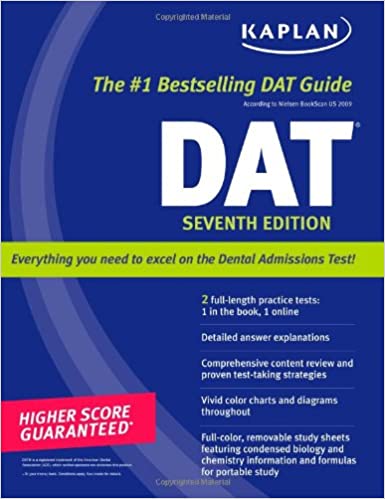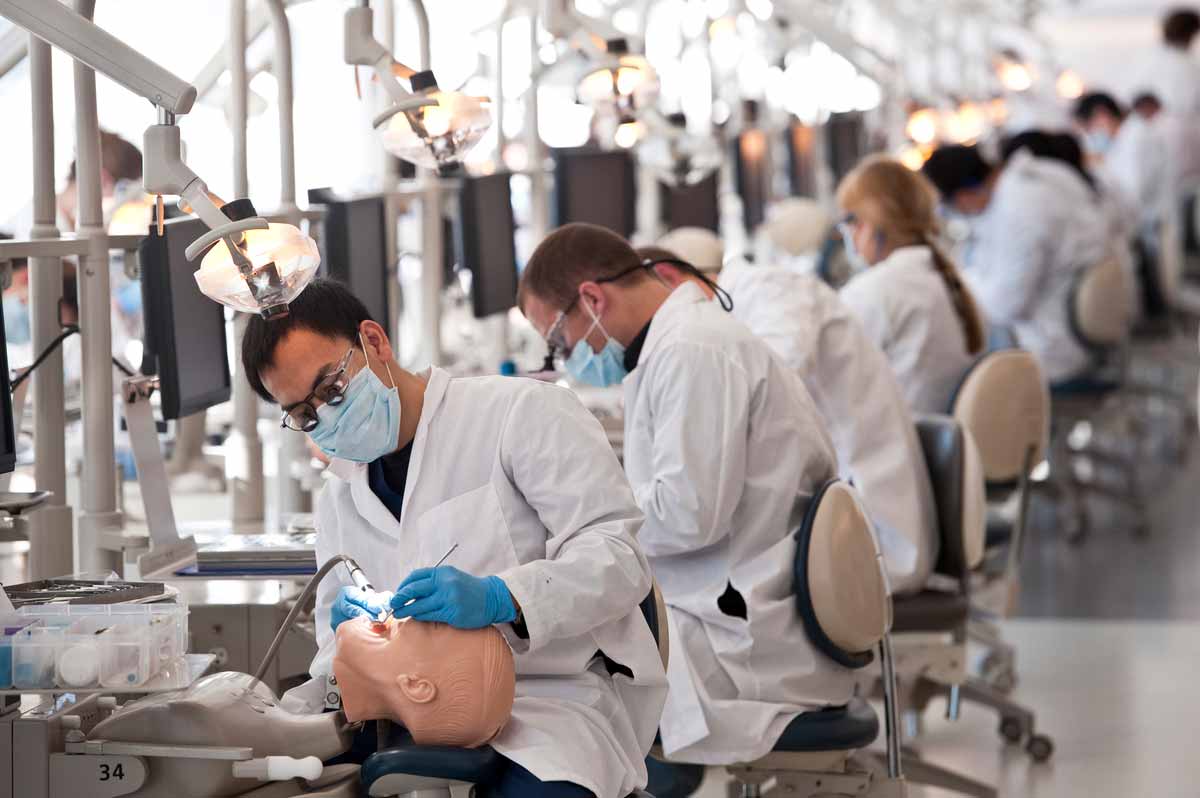Applying to dental school, I remember like it was yesterday. And although it’s nice to reminisce, it was a ball of excitement and uncertainty all wrapped into one. I remember the path to making my decision to apply. Becoming a dentist was something I dreamed of as a child. Although I kept my options open to other careers, dentistry was always in the back of my mind as “the one.” Then my sophomore year of college arrived. It was time to make a decision. Was I really going to choose dentistry as a career? If so, I better find out how to get into dental school. Enter dental school requirements–The roadblock that could have changed the path of my entire career.
In this article, we’ll talk about the nitty-gritty of dental school requirements. It would be easy only to give you a cold list of dental school requirements, but we both know…that’s not enough. If you’re considering dental school, you need to know the real-world stuff. You need to know what you’re in store for from a dentist who’s gone through it, and why it matters. But most importantly, you need to know about the normal roller coaster of emotions that happen to anyone who is working towards big things.
Fulfilling my Dental School Requirements
For me dental school requirements were overwhelming. I was already committed to an intense course regime in college, involved in student leadership, and working a part-time turned full-time job at a dingy gas station when the other attendant quit. It felt like such a hustle to begin with, and now you tell me I have to plan to meet strict dental school requirements? This was my first experience with what I later found out is the key to mostly any success—planning for the future while living in the present.
And so, at the time I was 20 years old and saw a list of requirements in front of me to become a dentist. So what did I do? I started second-guessing myself. What if dentistry wasn’t the right career for me? What if I wasn’t good enough? Maybe I would be better as a biochemist instead. What if I went through all this trouble and still didn’t get in? These are all normal emotions that everyone making a major life decision begins to feel. You could change out the requirements to that of any profession, and you’d still probably feel that way.
The key to overcoming decision paralysis is that I needed to ask myself the hard questions.
Did I really not want to be a dentist, or was it just the work of how to get into dental school was blurring my judgment?
Now here’s where it gets interesting. If I’m being honest, I was scared the whole time during the process of applying to dental school, but you know what? I did it anyway. I knew that for my personality and skill set, dentistry would be a good choice. The hesitation I felt, and trust me there was lots of it at times, was only due to the gravity of making a major life decision.
How to Get into Dental School

If you read an article of how to get into dental school that’s written by a school, it’s going to give you a very dry list. But dental school requirements are more than that.
In reality, the dental school requirements are meant to begin preparing you to be a dentist even before dental school. Each requirement lays the foundation for skills that you need to be successful in your career. So why not view your dental school requirements as a foundation of being a dentist, instead of simply requirements?
That’s what I did. I started funneling myself down the path toward becoming a dentist. It all started with understanding the requirements and making a plan. I knew if I looked at becoming a dentist on paper, it would be overwhelming, but I also knew the steps didn’t need to be completed all at once.
Dental school requirements happen over a period of time. And more importantly, career growth happens one step at a time. And you know what, studies show that as you develop in your career satisfaction increases. Makes sense right? So that’s what I did. I consistently paced myself. I progressed one step at a time.
Dental School: Why it’s worth it
There are not many careers that allow the versatility of dentistry. Although I didn’t realize it at the time, dental school was merely the start of my journey. It can be whatever you make it.
As a dentist you can be a local pillar of your community or a nationally recognized specialist. You can be a business owner or employee. If you want to get into media, you can be a thought leader or a healthcare personality. Do you like law? You can be a medical-legal expert. You can study the latest research and embrace the joy of lifelong learning and growth. Does technology and innovation interest you? Why not move the industry forward? You can be a patented developer and the CEO of a medical device company.
Dentistry has been the springboard for all these accolades. And yes, in case you’re wondering, you can be one of the top earners in the country. However, I’ll tell you right off the bat: Money is not always guaranteed simply by getting a dental degree. It’s what you do with your degree after you graduate that creates success.
In my writing, I talk a lot about identity. If you’re going into dentistry thinking it’s a service business, you’re partially correct, but mostly wrong. Yes dentists do perform a service, but that’s only a part of it.
Dentistry is an identity business.
The choices you make early in your career can lead you to completely different destinations both professionally and personally.
At times, I have enjoyed all of these different roles until I established what worked best for my personality and goals. This is what I hope for young people entering the field. Dentistry can be what you want it to be. Afterall, if you love what you do, you’ll ultimately be the best you can be for your patients and the overall industry.
Fulfilling YOUR Dental School Requirements
Okay, now that we’ve set the scene, let’s get on with it. There are six dental school requirements all prospective dentists must clear to apply to dental school. Look at this dental school requirements less of requirements and more as the minimum foundation required.
1. Obtain a Bachelor’s Degree
Prior to dental school, you will need to complete a bachelor’s degree. Give your classwork your best effort and do the best you can. Dental schools view applicants as more than a GPA, however, the most competitive applicants have GPAs above 3.5. Your GPA is one of the biggest factors you can control for being a competitive applicant. However, if your GPA is less than 3.5, do not give up. Often applicants have other extraordinary circumstances that over shadows it. In terms of courses, you may choose any major you like, but you’ll need to make sure that you complete the dental prerequisite courses along the way. Most dental schools require the following:
- 8 credit hours of physics
- 8 credit hours of biology
- And yes dental school likes the number eight
- 8 credit hours of general chemistry
- 8 credit hours of organic chemistry
It’s often easier to choose a major that incorporates some of these subjects intrinsically, but you don’t necessarily need to major in a science as long as you complete the prerequisite courses. Meet with you academic advisor to discuss your goals and have feedback in making a plan.
2. Shadow Practicing Dentists
Shadowing practicing dentists is a dental school requirement, but when you think of it, its more of a self-service. Most dental programs require applicants to have 100 hours of experience job shadowing dentists so that you can see how different offices operate. Your goal during this time is to confirm that you enjoy the working environment and the duties of the profession.
You will not be completely comfortable with everything because everything new feels somewhat awkward. However, shadowing a dentist is a great opportunity to learn what your future profession feels like. A good place to start is by asking your dentist for a shadowing opportunity and then reach out to other offices for a different perspective.
3. Be More than Just Student: Get Involved with Extracurriculars
Dentists are more than their practice. They are often leaders in their community that are entrusted with the care of others. Dental schools want to see that applicants are more than just a good test taker. They want to see compassion, empathy, leadership, and the ability to multitask. Find activities in your school and community that you are interested in and commit to them. It can be athletics, student government, community service, on-campus clubs, etc. The possibilities are endless and so are the opportunities to gain experience as an endearing leader in your community.
4. Take the Dental Admission Test (DAT)

Ah yes, a standardized test is also a dental school requirement. The test for dental school is called the Dental Admission Test, or DAT for short. The DAT is taken in junior year of college for students applying immediately after college. It is scaled on an exponential 30 point scale, and a score of 19 is considered competitive for dental school requirements. For applicants that are great test-takers this is where they shine, and for some applicants, the DAT is their worst nightmare. Regardless if you like taking tests or not, what you should do is the same:
Prepare.
Familiarize yourself with all the DAT study books and research any tutoring courses that can help. Plan to study for 8-12 weeks which ramps up as the test gets closer. The final week should be dedicated only to studying and taking practice tests, and nothing else. Passing the exam is a dental school requirement and encompasses four of the following sections:
The Natural sciences: 100-question section on biology and chemistry
Perceptual ability (also known as the PAT section): 90-question section on spatial reasoning
Reading comprehension: 50-question section containing specific passages of general topics
Quantitative reasoning: 40-questions section about statistics, data analysis, algebra and probability
5. You completed the Dental school Requirements: Select Your Schools and Apply!
The final dental school requirement is the application. Spend time researching the schools you want to attend. I encoursge you to apply to many, like around 10 is a good average number. Consider the location, the reputation, the class size, the age of the clinic, the average dental school requirements in terms of GPA etc, and the cost of the program.
A good place to start is with ADEA which publishes information on each of the schools in a book each year and also the websites of each of the individual schools. If you want to see a list of all the current dental schools check Wikipedia here. Most students start their application process a year before graduation in the summer or fall the year prior. Spend time crafting your application to be sure to note all your compelling and wonderful attributes that make you more than a GPA or DAT score. Here is what you’ll need to include in your application:
- The standard application form
- An official college transcript
- A personal essay
- Four letters of recommendation
- A resume or CV
- Your DAT scores
- Proof of your job shadowing hours
- An application fee of $245
6. The Dental School Admissions Interview

Once you’ve applied to dental school, you have to sit back and wait. The most competitive applicants will be contacted for a first round of interviews, and there will be subsequent rounds until the class is full.
Prepare for your interview by thinking about your personal strengths, background, and communication skills. Interviewers want to see that you are respectful, professional, mature, and of good character. The interviews tend to ask questions about your personality and empathy to help others. Review personal experiences that demonstrate these skills and rehearse your thoughts beforehand. Prepare to speak of any achievements or extracurricular achievements you are proud of. Prepare to speak of why you want to be a dentist and the highlights of your experience shadowing a practicing dentist. Practicing your responses with a friend beforehand may help you relax better during the interview.
After the interview, you find out if you are accepted generally very quickly. Often the next few weeks you will receive a letter if you were accepted into the program.
Closing Remarks: How to Get into Dental School
I wish you the best with whatever career path you choose. Becoming a dentist may not be the best fit for everyone, but if you choose it as a career path, the rewards can be well worth the effort. One of my favorite sayings is, “the juice has to be worth the squeeze.” I think it was from a movie in the 90s.
The point is… despite the dental school requirements serving as a tedious right of passage, that is as it should be. If you invest your time and effort into completing dental school requirements, you can rest assured the profession is protecting the stability of your future career and the applicants that come after you.


